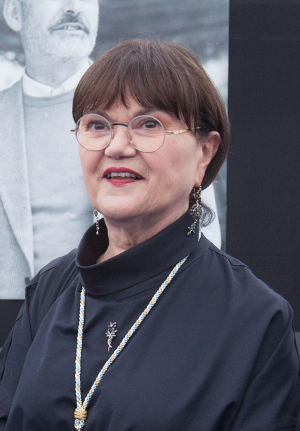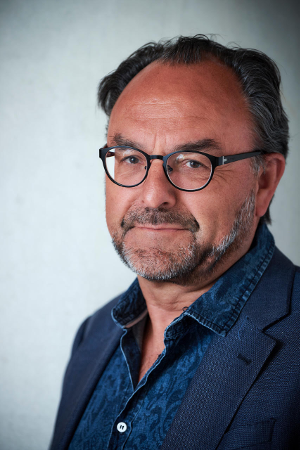MARGARITA LEDO
Margarita Ledo Andión, professor of audiovisual communication at the University of Santiago de Compostela, USC, and coordinator of the research group: “Estudos Audiovisuais. Comunicación Audiovisual: Contidos, formatos e Tecnoloxía” [Audiovisual Studies. Audiovisual Communication: Contents, Formats and Technology], Santiago de Compostela, Galizia.
Rethinking diversity: cinema in non-hegemonic languages as a symptom
Diversity is not plurality, is not the recognition of others as different but the occupation of different territories. Diversity is numerical and territorial. It is the possession of the place and the resources – communicational, economic and financial – to transform them into action.
This statement from Brazilian prof. Muniz Sodré has become a kind of alert in order to consider new variables in the field of Cinema studies related to small and stateless nations as an analytical tool and a political project; non-hegemonic languages as a as a symptom related to socio-cultural rights and Cinema as an identitarian agent.
From these premises I will analyse certain transformations in academic thinking as well as institutional texts and collective actions, taking into account visibility, accessibility and circulation of identitarian cinema as the main goals of Glocal Cinemas.
In this regard, what does it mean the lack of measures within the European policy concerning the cinema in non–hegemonic languages? Should EU create a specific funding policy for small cinemas? Should be created a minoritised languages communities market/brand? And last but not least, should European Union include in its diversity concept the nations without state?
As a specific action, I will present the research project “Intangible Cultural Heritage: For a European Programme for Subtitling in Non-Hegemonic Languages” [EU-VOS] that can have an impact on both the access and transnational mobility of films made in non-hegemonic languages and the consideration of “local” as a core element for another way of understanding European diversity.
IB BONDEBJERG
Professor emeritus in The Department of Media, Cognition and Communication, University of Copenhagen, Denmark.
Professor emeritus Ib Bondebjerg Keynote
Globalisation, Multicultural Reality and the Creative Diversity of Scandinavian Cinema
Globalisation is often mostly thought of as a danger and challenge to small cinemas and as the strengthening of multinational, global companies. This is indeed a very important dimension to have in mind, when addressing globalisation and cinema. However, as I will demonstrate in this keynote with examples from Scandinavian cinema, small nations have also been able to gain momentum in this global world by creative and economic co-production. This form of regional, transnational cinema has benefitted from EU policies in this area and also to a large degree by regional and national film support and collaboration. This transnationalisation of the cinema (and television) of small nations in Scandinavia (and Europe) contributes to the global and multicultural diversity of film culture. Based on theories of mediated cultural encounters and the forming of our social imagination, this keynote looks at structural developments of Scandinavian cinema and present central key films to demonstrate the theory.
Ib Bondebjerg is professor emeritus in Film, Media and Communication at the Department of Media, Cognition and Communication, University of Copenhagen, Denmark. He was chairman of The Danish Film Institute (1997-2000) and founder and leader of the Centre for Modern European Studies (2008-2011). He was co-director of the European research projects Changing Media – Changing Europe (2000-2005) and Mediating Cultural Encounters through European Screens (www.media.co.uk). He is co-editor of the Palgrave European Film and Media Studies book series (2015-). His most recent books in English are: European Cinema and Television. Cultural Policy and Everyday Life (co-ed. 2015) and Transnational European Television Drama: Production, Genres and Audiences (co-author 2017, forthcoming).

